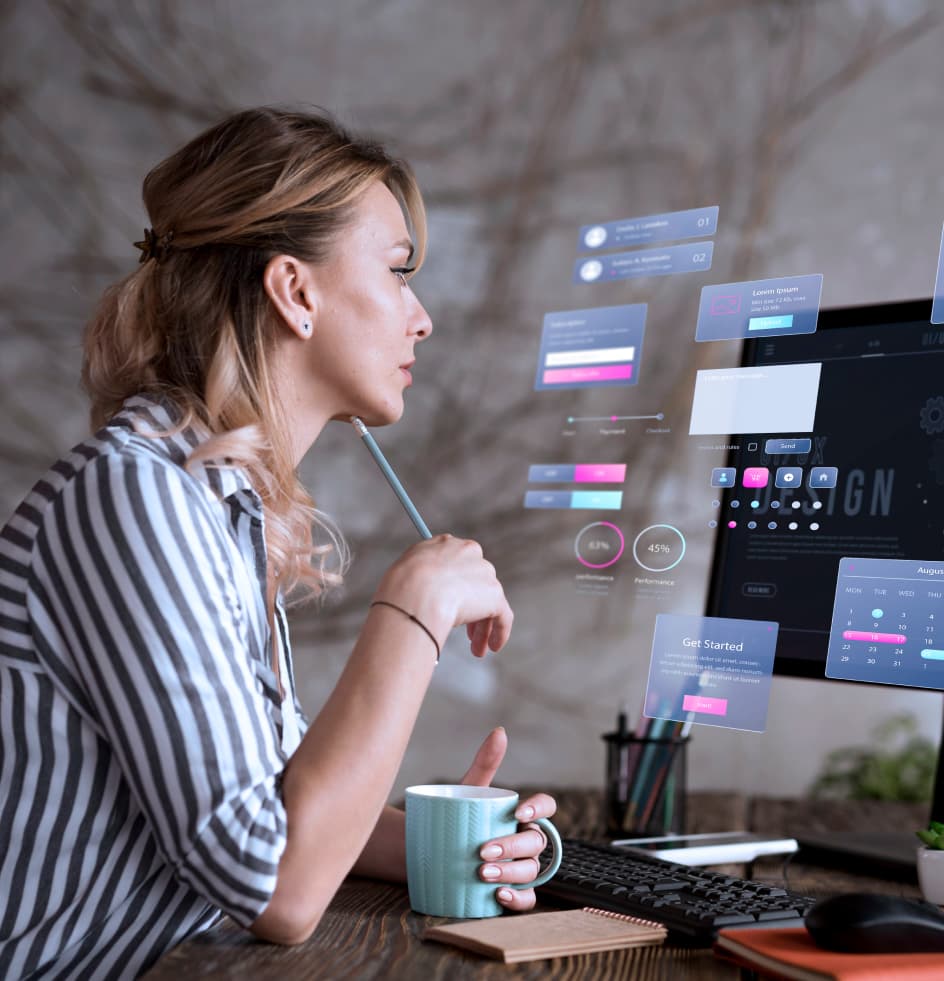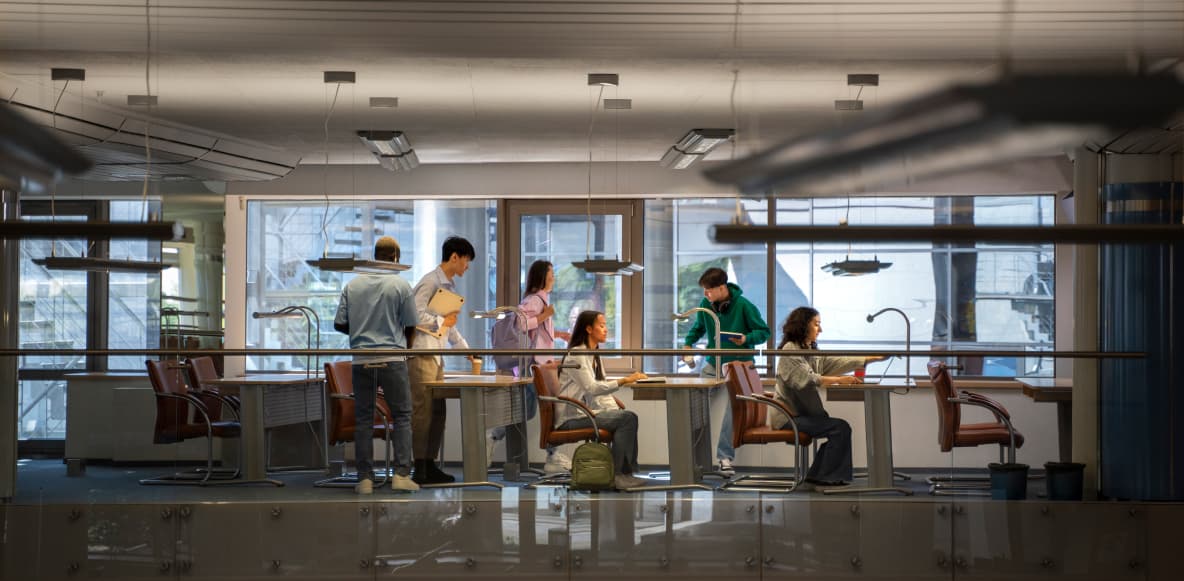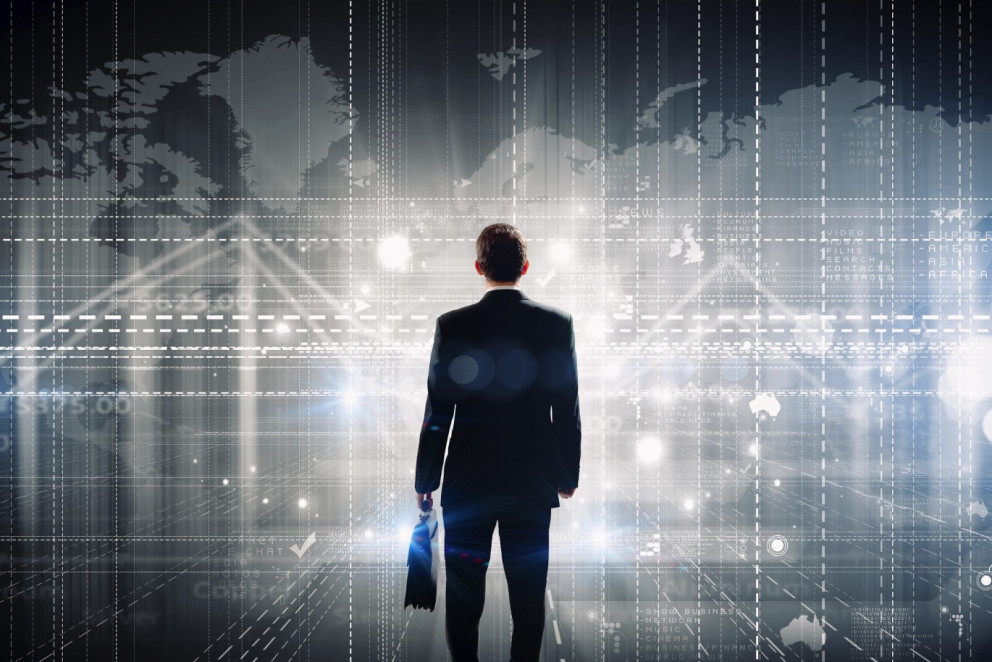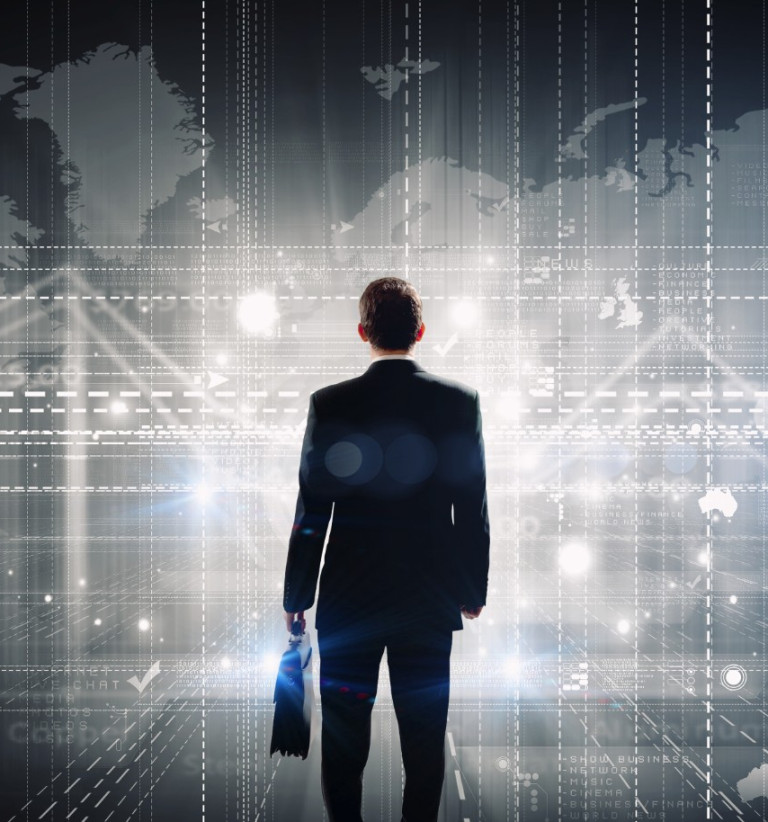The change is already here 💻✨
The impact of technology on the workplace
Automation, AI, and their effects on daily work
Automation and AI are here to stay. From chatbots that automatically respond to emails to tools that analyze massive amounts of data in seconds, technology has enabled employees to focus on strategic and creative activities instead of repetitive tasks.
Artificial intelligence in decision-making
AI also plays a crucial role in business decision-making. Advanced algorithms analyze trends, anticipate problems, and suggest real-time solutions. However, it is important to remember that while technology is a great ally, human intuition and creativity remain irreplaceable.
The hybrid office: the future of work flexibility
The pandemic accelerated a shift that was already in motion: the adoption of the hybrid office model. Now, companies seek to combine the best of in-person and remote work to provide employees with greater freedom and comfort.
Tech tools for remote collaboration
Hybrid work has driven the rise of new online collaboration tools. Platforms like Slack, Microsoft Teams, and Zoom have become essential, making remote communication and project management more efficient.
Challenges of adopting technology in hybrid work
Despite its advantages, the transition to the hybrid model comes with challenges. Here are some of the issues companies have faced in just a few years:
- Coordinating online teams
- Digital fatigue
- Maintaining a strong corporate culture despite remote work
- The shortage of digital resources
In this regard, coworking spaces, like those at Lexington, offer a flexible and tech-equipped solution to ease this transition into a hybrid work model.
Smart workspaces: the next generation of offices
The smart office concept goes beyond digitalization. It’s about designing environments that promote efficiency, collaboration, and employee well-being.
Design and technology in workspaces
Modern workspaces integrate technology to enhance the work experience, from adjustable desks to smart lighting systems that reduce eye strain. Our private offices in Barcelona and Madrid offer technological solutions and customization options to ensure comfort and productivity.
¡Rellena el formulario para más info!
The importance of cybersecurity in future offices
With digitalization comes new risks. Cybersecurity has become a top priority, and companies must invest in data protection, biometric authentication, and secure networks to prevent cyberattacks.
How do these changes affect employees and corporate culture?
Continuous training and adapting to technology
In a constantly evolving work environment, training is essential. Companies must promote ongoing education in new technologies so employees stay updated and can make the most of available tools.
💡 We recommend this Bcas article on why continuous training is essential for businesses.
Privacy protection in work environments
The use of technology in the workplace also raises concerns about privacy. It’s crucial to find a balance between monitoring productivity and respecting employees' privacy.
Technology is redefining the workplace, and one thing is clear: the offices of the future will be smarter, more sustainable, and more secure. But beyond tools and advancements, what truly matters is how people interact with them. Are you ready to adapt to this new work paradigm? 😉









